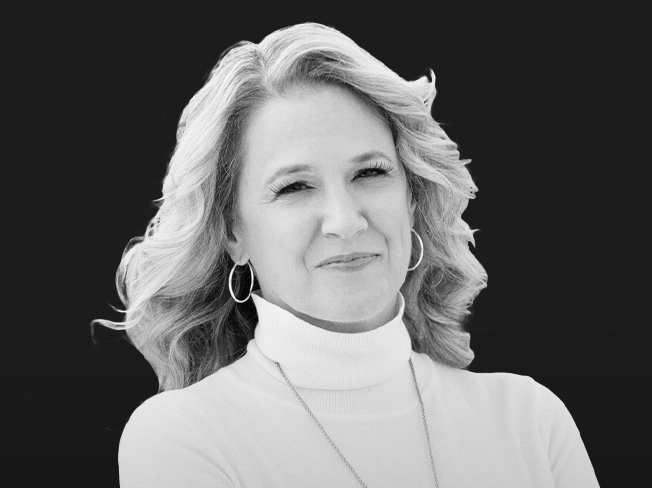Launch and Market Your Crowdfunding Campaign | Tory Burch Foundation
Launch and Market Your Crowdfunding Campaign
"Turn a crowd into an engine powering your dream."
49,461 Views
7 Likes
7 min read
Link copied to clipboard
You may have heard crowdfunding success stories where an unknown business gets incredible traction seemingly overnight through GoFundMe or IndieGogo page. But how can businesses actually leverage these platforms to grow their businesses? Iquo B. Essien, filmmaker and founder of Crowdfund Your Dream, talked to our community about the kinds of crowdfunding, how to set up a crowdfunding campaign and tapping into your network to reach your goals.
WHAT IS CROWDFUNDING?
Broadly, crowdfunding is financing a business or project with small amounts of capital from a number of people. For Essien, “Crowdfunding is the most effective way to tell your story, package it up, share it with a call to action and turn a crowd into an engine powering your dream.” Though most think of crowdfunding in terms of online fundraising campaigns, Essien reminded us that communities of color have used crowdfunding decades before GoFundMe. Think, passing a collection plate for church projects or lending families money through a sou-sou savings club. Like those collection plates, digital crowdfunding is a great way for business owners from marginalized groups to address the funding gap.
Crowdfunding is an option for businesses at any stage. However, it’s important to keep track of the amount raised, as you will have to report this on your taxes.
The three kinds of crowdfunding
Donor-based Crowdfunding
A business or person can set up a crowdfunding page to ask their communities for funds, and community members know they won’t get anything except a warm “thank you” in return.
Rewards-based Crowdfunding
In these types of campaigns, an individual or business agrees to give thank-you gifts to people who give funds. The cost and effort needed to get those gifts out can be high, so carefully consider how you’ll thank contributors. Essien recommends digital rewards and low-cost experiential perks. She urged caution when it comes to anything you have to produce and ship yourself.
Equity Crowdfunding
The 2012 JOBS Act made it possible for non-accredited investors (as in, regular people) investing as little as $100 to gain equity in a startup, and for startups to raise up to $1 million through crowdfunding. All those funders are listed as a single entity on the company’s capitalization table, or the document that keeps track of how much equity various entities own. Companies interested in equity crowdfunding will need legal help to create the agreements.
HOW TO CHOOSE A CROWDFUNDING PLATFORM
Which one is best? The platform you choose depends on your needs.
One important thing to consider is whether or not a crowdfunding website uses a fixed funding model. Kickstarter is an example of a platform with a fixed funding system where, if you don’t raise the full amount indicated in your campaign, you don’t receive any funds.
Should you decide you want to run a rewards-based campaign, select a platform that has a built-in rewards feature, like Kickstarter or Indiegogo.
Essien believes entrepreneurs shouldn’t shy away from using more than one platform at the same time, especially considering racial bias some founders encounter on platforms (Kickstarter is fighting this bias with its Creative Capital x Skoll Foundation Fund). However, she recommends that if you run multiple campaigns and you don’t reach your goal in one, delete the campaign. Those pages show up in search and can hurt your company’s reputation.
“IT’S LIKE A WEDDING.”
Essien uses weddings as a metaphor to help her clients understand creating and marketing a crowdfunding campaign. “Oftentimes at your wedding, people bring you money and gifts,” she explained. “You might think of a wedding as a crowdfunding campaign to jumpstart your marriage.” In order to bring your community together to help you, you have to find the venue (your platform or other way to collect money), tell guests when to arrive (communicate when your crowdfunding ends and begins), and make a registry (tell your funders what to give and how their gift ties into the big picture).
The Budget
Just as a wedding requires a budget, so does your campaign. Start with the money you need to raise for your set goal and add in the cost of any outside help you my need managing additional email or social media strategy, the platform’s fees and the cost of rewards, if you’re including them.
Essien also recommends padding the budget by 10%, just in case. “You can run a successful crowdfunding campaign and lose money, people do it every day,” she explained. Some companies may do that just to build an email list of interested potential customers. But if you want to stay in the black, budget carefully. Consider raising a small amount at first to see the effort required to reach that goal, then launch another campaign with your reach goal.
The Invitation
In this analogy, your story is your wedding invitation. Tell potential funders why you are especially in love with this business or project. Position yourself as the story’s hero, or the person who is the right choice for creating big change in your corner of the world. Save your broader, less personal mission statement for other kinds of collateral.
GET THE WORD OUT.
“I can’t tell you how many people I know who turn on and publish a crowdfunding campaign and never tell anybody about it,” Essien said. “Would you put up a wedding website and not tell anybody it’s there?” Never.
Plan the marketing activities that will get your “invitation” to potential guests. Are you mailing engraved stationery or relying on online RSVP cards? Look at your other marketing efforts and think about what your audience responds to best. “If you’re on LinkedIn, [and] nobody’s clicking through on LinkedIn, but people are looking at your tweets, then maybe you should tweet more.”
Managing the crowdfunding page and the marketing activities can be a lot of work, and may require more attention than you’re able to give. Essien shared that she brought on additional help for her first crowdfunding campaign: a social media manager, a fundraising copywriter and a virtual assistant.
Be clear about your ask and be flexible. Consider giving your community other ways to invest in you, outside of your chosen platform. Is there a Venmo, CashApp or PayPal they can use? Where can someone mail a check?
Asking for money can be uncomfortable, but Essien’s wedding analogy reassures business owners. “The point of the wedding isn’t for the gift or the money, right? It’s so [that] the people that care about you can come and help you launch that marriage and that new life in the world…and be a witness to it.”
FIND YOUR FUNDERS.
The number of people you can invite to support your crowdfunding campaign is bigger than you think. Essien instructed our community to write down their immediate circle of friends and family, the estimated number of people those friends and family know, their community and the estimated people in their business’ audience. “People often overestimate the amount of money they get from strangers and underestimate the money thy get from people who know them,” Essien explained. “Then they under utilize their personal networks, and they don’t let anybody know about it.”
“Anybody who’s ever come through your phone is somebody you can reach out to as well,” she added.
That exercise usually gives you a big number, which can feel overwhelming. Structure your outreach in tiers, starting with the people you think can contribute large amounts, or the people you think can have those kinds of potential contributors in their network. Be intentional about your outreach; are you sending them a pitch deck or will they be more receptive to a phone call?
KEEP THE MOMENTUM GOING.
Communication with your funders doesn’t end when your campaign does. Crowdfunding is a chance to raise money and strengthen your community. Foster their trust. Make sure you send their reward. Update them on your project status. This is your chance to build relationships with people who may support your company again.
Help an entrepreneur by upvoting
Timely Topics
INTERACTIVE GUIDE
FUNDING FINDER
Learn what capital options are right for financing your business
Get Started


